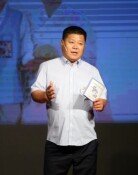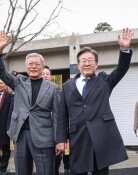Taxation on religious leaders
Benjamin Franklin, the U.S. politician and inventor, said, Two things that no one can avoid are death and tax. In the U.S., Europe and Japan, tax collection from religious leaders is considered natural. Article 38 of the Korean Constitution also clearly provides that all people are obliged to pay tax, but religious leaders have long been exempt from income tax here. Since then National Tax Service chief Lee Nak-seon proposed the need to levy tax on religious leaders in 1968, only to fail in the face of opposition by the religious community, controversies have erupted over the need to levy tax on them, but they have faded repeatedly all the time.
The Catholic Church deducts withholding tax from income sources from priests and nuns since its resolution at its bishops conference in 1994. The Anglican Church of Korea also made resolution for voluntary tax payment by its clergymen in 2013. Some people in the Protestant Church and Buddhism also have positive views on tax payment by their leaders. However, there are many people who remain vehemently opposed to such taxation as well. We will stage an anti-campaign at the next general elections to block election of a political party or lawmakers who are supportive of taxation on religious leaders, a religious group warned last year.
In a " 2015 revision to the Tax Law announced on Thursday, the Strategy and Finance Ministry said it will levy tax on religious income as part of other income by revising the Income Tax Act. As bids to revise the tax law designed to levy taxes on religious leaders have failed to clear the National Assembly repeatedly, the government planned to revise executive ordinances of the Income Tax Act in January this year and start levying tax from next year. Due to growing burden from the enforcement of taxation by means of the executive ordinance, however, it shifted its plan to revision of the law. However, it is uncertain whether ruling and opposition party lawmakers will cooperate on taxation on religious leaders, a "political hot potato," ahead of the general elections in April next year. Above all, the ruling Saenuri Party demanded a cautious approach to the issue at the party-government consultative meeting on Thursday. However, Korea cannot afford to further delay correction of tax exemption for religious leaders, which is not compatible with common sense and global standards.
The Strategy and Finance Ministry said the revision bill, which entails cut of tax exemption and reduction for conglomerates and introduction of a taxation system designed to promote youth employment, will help increase tax revenue by about 1 trillion won (860 million U.S. dollars) by raising tax burden on high income earners and conglomerates. The revision bill effectively excludes again this year a measure to reduce the rate of tax-exempted salaried people, which soared to 48 percent after the government and political parties introduced a sloppily prepared supplementary measure after the fiasco in tax return for last years income. It is regrettable that we never know how much longer the government has to keep intact Korean-style distortion of tax burden, which allows about half of salaried people not to pay even a single penny after their tax-return.
Benjamin Franklin, the U.S. politician and inventor, said, Two things that no one can avoid are death and tax. In the U.S., Europe and Japan, tax collection from religious leaders is considered natural. Article 38 of the Korean Constitution also clearly provides that all people are obliged to pay tax, but religious leaders have long been exempt from income tax here. Since then National Tax Service chief Lee Nak-seon proposed the need to levy tax on religious leaders in 1968, only to fail in the face of opposition by the religious community, controversies have erupted over the need to levy tax on them, but they have faded repeatedly all the time.
The Catholic Church deducts withholding tax from income sources from priests and nuns since its resolution at its bishops conference in 1994. The Anglican Church of Korea also made resolution for voluntary tax payment by its clergymen in 2013. Some people in the Protestant Church and Buddhism also have positive views on tax payment by their leaders. However, there are many people who remain vehemently opposed to such taxation as well. A religious group warned last year, We will stage an anti-campaign at the next general elections to block election of a political party or lawmakers who are supportive of taxation on religious leaders.
In a "2015 revision to the Tax Law announced on Thursday, the Strategy and Finance Ministry said it will levy tax on "religious income" as part of other income by revising the Income Tax Act. As bids to revise the tax law designed to levy taxes on religious leaders have failed to clear the National Assembly repeatedly, the government planned to revise executive ordinances of the Income Tax Act in January this year and start levying tax from next year. Due to growing burden from the enforcement of taxation by means of the executive ordinance, however, it shifted its plan to revision of the law. However, it is uncertain whether ruling and opposition party lawmakers will cooperate on taxation on religious leaders, a political hot potato, ahead of the general elections in April next year. Above all, the ruling Saenuri Party demanded a cautious approach to the issue at the party-government consultative meeting on Thursday. However, Korea cannot afford to further delay correction of tax exemption for religious leaders, which is not compatible with common sense and global standards.
The Strategy and Finance Ministry said the revision bill, which entails cut of tax exemption and reduction for conglomerates and introduction of a taxation system designed to promote youth employment, will help increase tax revenue by about 1 trillion won (860 million US dollars) by raising tax burden on high income earners and conglomerates. The revision bill effectively excludes again this year a measure to reduce the rate of tax-exempted salaried people, which soared to 48 percent after the government and political parties introduced a sloppily prepared supplementary measure after the fiasco in tax return for last years income. It is regrettable that we never know how much longer the government has to keep intact Korean-style distortion of tax burden, which allows about half of salaried people not to pay even a single penny after their tax-return.
shkwon@donga.com







